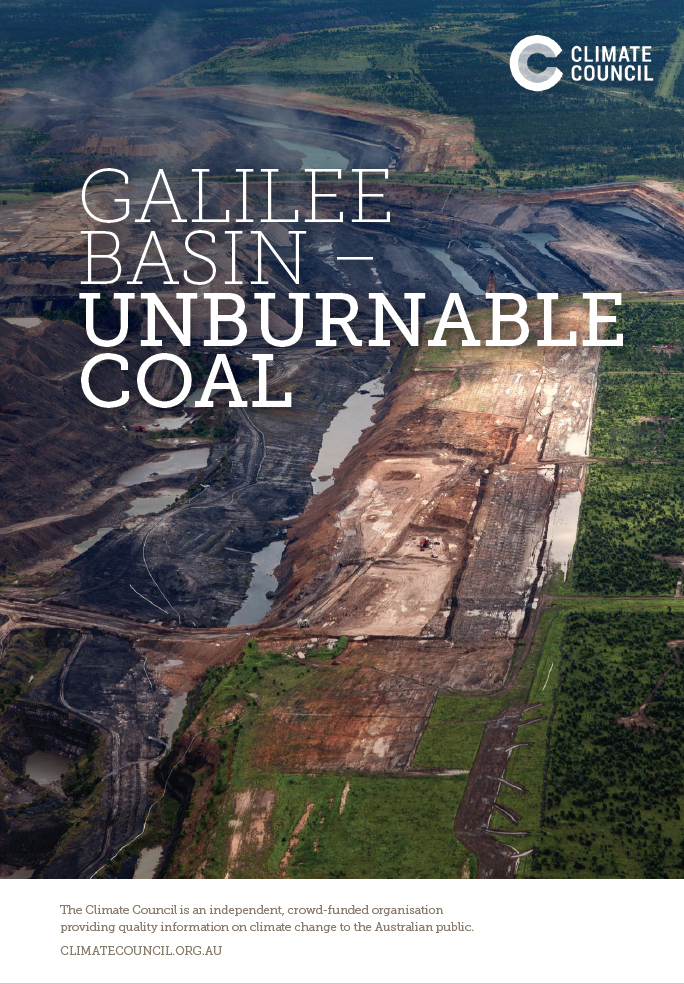This content is more than 9 years old
This new report reveals that if all of the Galilee Basin coal was burned, an estimated 705 million tonnes of CO2 would be released each year – more than 1.3 times Australia’s current annual emissions.
KEY FINDINGS
Tackling climate change effectively means that existing coal mines will need to be retired before they are exploited fully and new mines cannot be built.
- Burning coal for electricity is one of the key drivers of climate change.
- 195 countries have agreed to limit temperature rise to no more than 2°C. This puts a cap on how much coal the world can burn. Even under the most optimistic assumptions, only 12% of the world’s coal reserves can be burned.
- Moving away from fossil fuels means that new energy sources, like solar and wind, must come online rapidly.
- Any new coal mine is fundamentally at odds with protecting Australia from the impacts of climate change.
The Galilee Basin coal could emit more than Australia’s entire emissions each year.
- More than 90% of known, extractable coal in Australia’s existing coal reserves must stay in the ground. Therefore, there is no justification for opening new coal mines – the most pressing challenge Australia faces is how to phase out existing coal mines well before their reserves are exhausted.
- If all of the Galilee Basin coal was burned, it is estimated that 705 million tonnes of CO2 would be released each year – more than 1.3 times Australia’s current annual emissions.
Potential export markets for Galilee coal are rapidly dwindling as the world moves away from coal toward renewable energy.
- China’s coal use dropped by 3% in 2014 and is projected to fall a further 2.5% in 2015. In March, China announced that it will cut coal consumption by 80 million tonnes by 2017 and by a total of 160 million tonnes between 2014 and 2020.
- Global investment in new renewable capacity is now greater than investment in fossil fuels, and the gap is expected to widen as investment in renewables surges ahead.
- Potential export markets for Galilee Basin are dwindling fast. Only India remains a possibility and it is wavering in its commitment to importing coal.
There are increasing signs from global investors that they consider Galilee coal too risky of an investment.
- A total of 11 international banks have now publicly announced that they will not be involved with any projects in the Basin.
- HSBC, one of the world’s largest investment banks, has cited plummeting cost of renewable energy and the reduced coal demand from China as having significant consequences for Australia’s coal investments and increasing the risk of stranded assets
- The $890 billion Norwegian Government Pension Fund Global, the largest pension fund in the world, recently announced it would reduce its exposure to fossil fuel risk by divesting more of its coal-related holdings, sending a strong message to the financial sector.
